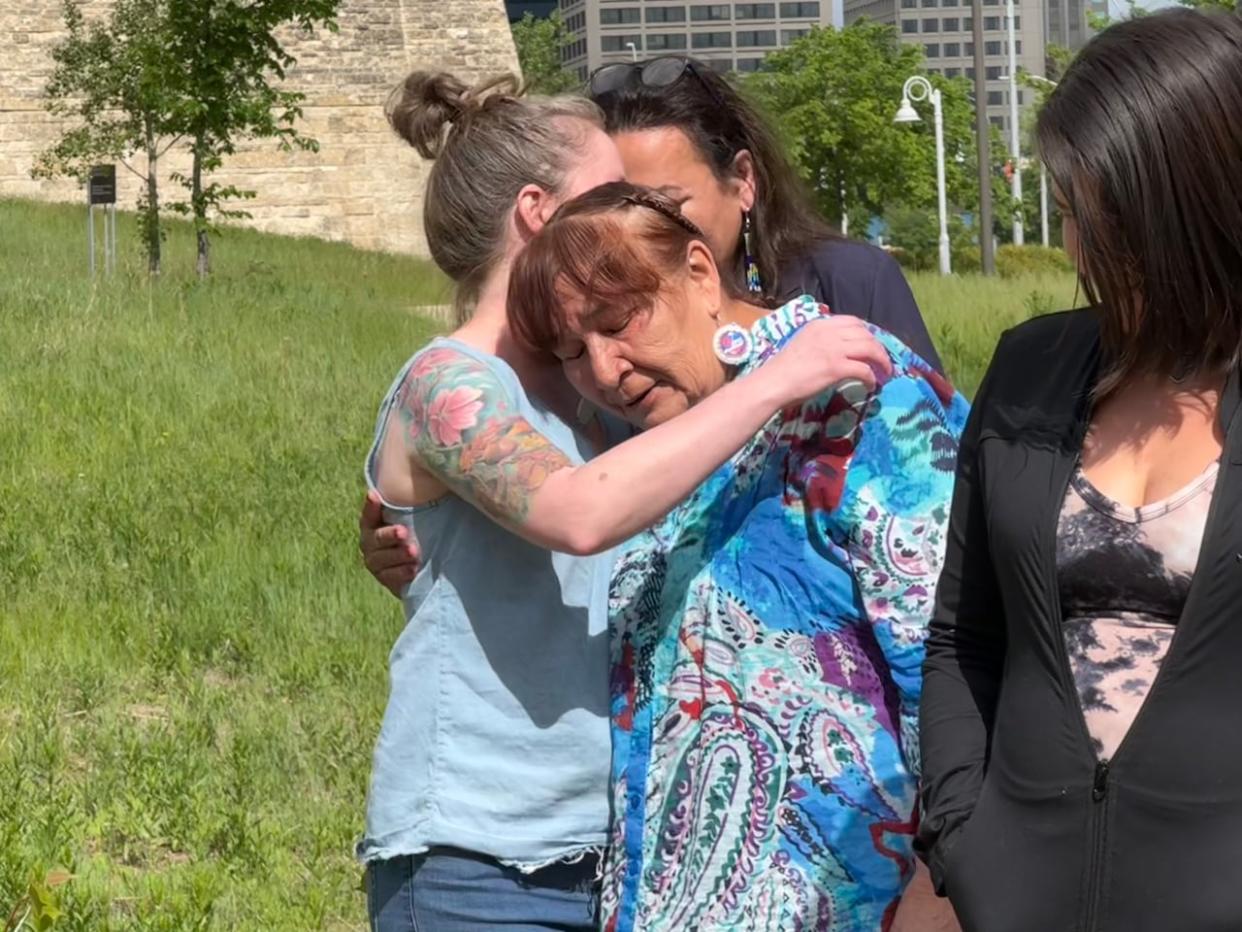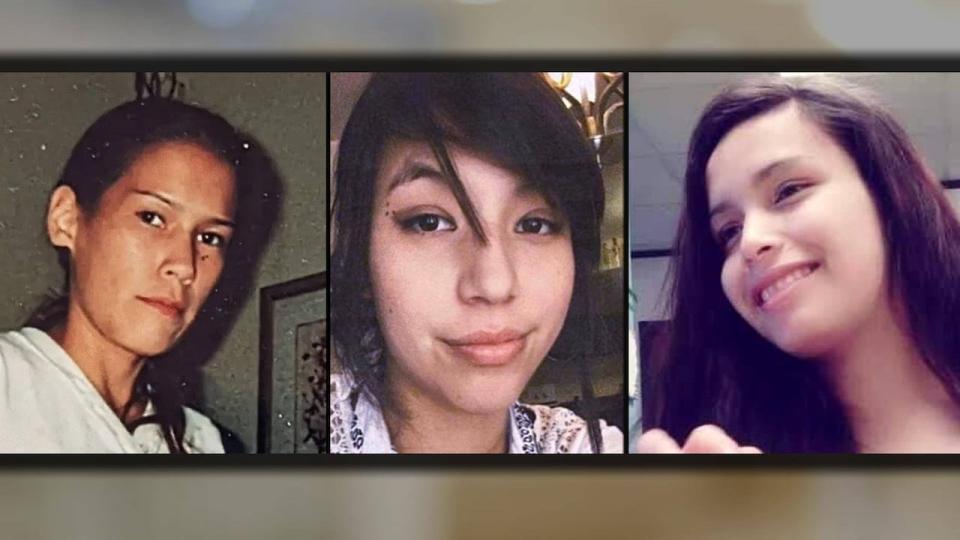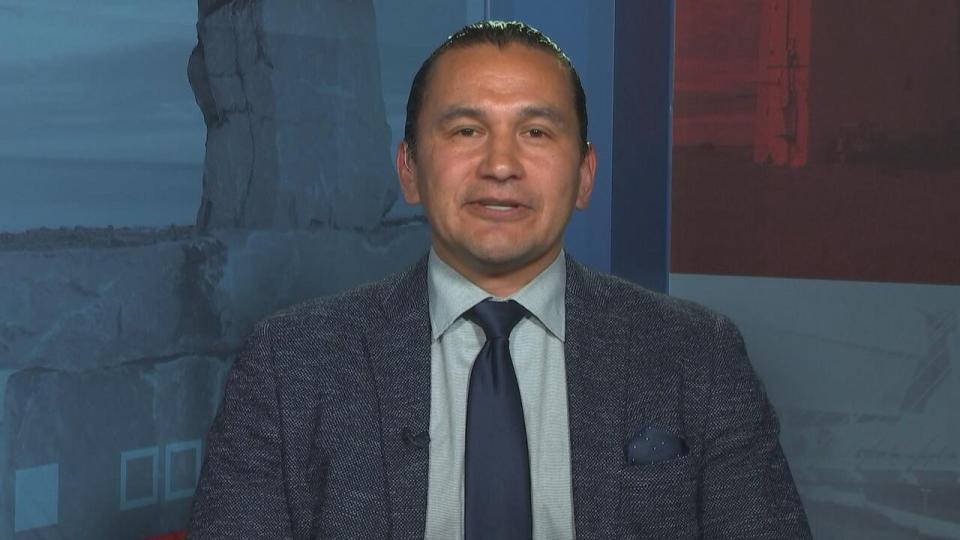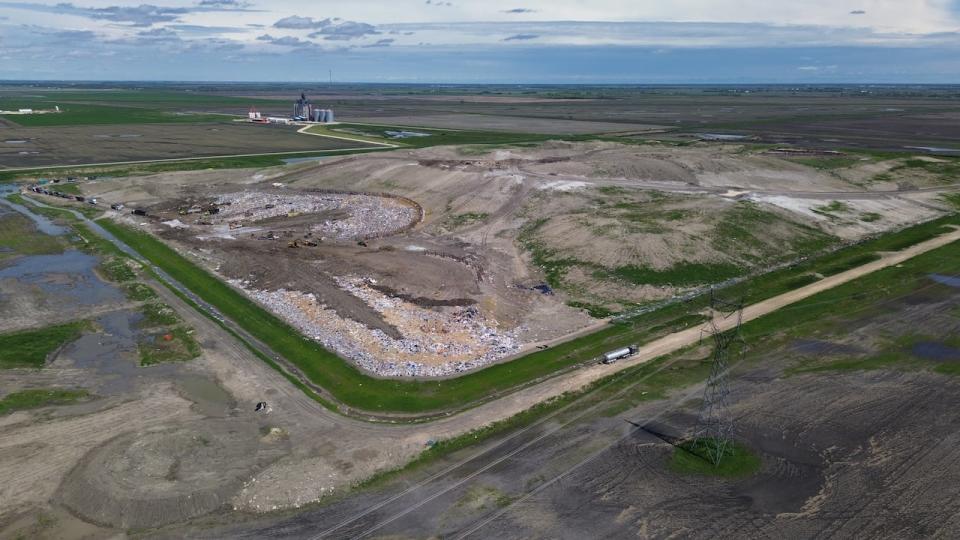Family 'elated' landfill search for women's remains will start soon, grandmother says

When Donna Bartlett returned this week to the landfill where her granddaughter's remains are believed to be buried, she was again overcome with emotion. But this time, she said, it was different — because she knew a search to find those remains would soon begin.
"I was just thinking, 'OK, we're going to get you home, my girl,'" Bartlett said. "We're going to get you home."
Bartlett spoke at a news conference outside the Canadian Museum for Human Rights on Thursday, two days after Manitoba Premier Wab Kinew said the province had approved an environmental licence change needed to move forward with the landfill search.
That search is expected to get underway in the coming months, she said. Workers will sift through debris by hand for the remains of Bartlett's granddaughter Marcedes Myran, 26, and Morgan Harris, 39.
The women are among four victims of an admitted serial killer.
Jeremy Skibicki admitted to killing Myran, Harris, Rebecca Contois, 24, and a fourth, unidentified woman whom community leaders have given the name Mashkode Bizhiki'ikwe, or Buffalo Woman, in 2022. Despite the confession, he pleaded not guilty, with his lawyers arguing he was not criminally responsible due to a mental disorder. The trial wrapped up earlier this week, and the judge is expected to deliver his decision next month.

Left to right: Morgan Harris, Marcedes Myran and Rebecca Contois. (Submitted by Winnipeg Police Service and Darryl Contois)
Bartlett said her family was "elated" to learn the search for her granddaughter's remains would soon begin.
Premier Kinew gave the women's relatives an outline of how the search will be run, she said, with plans to create an advisory committee that will include family members.
As she spoke to reporters, Bartlett often had to pause to collect herself.
"I'm getting a little bit emotional, because it's been a hard journey — a very hard journey to go. We should have never had to go through it, but we did it," she said.
"Just know it was a long two years. The trial was hard, two years of doing everything was hard … and now we're going to get it done. I am so happy."
Search could be done by now if PCs had acted, premier says
The search for the remains will begin with a targeted search that's estimated to take five months. It will be preceded by a "pilot search" this month, meant to give workers a better understanding of the materials in the landfill.
In an interview Thursday with CBC's Power & Politics, Kinew reiterated his government is prepared to extend the search into 2026.

Premier Wab Kinew told Power & Politics host David Cochrane the search of the landfill would've been done by now if the former Progressive Conservative government started the process when they were asked to. (CBC)
He also said the work the NDP has put into designing the search shows the former Progressive Conservative government did not make a "good-faith attempt" to figure out the costs and technical requirements of doing so.
"If Heather Stefanson and the PC government had started this search when they were asked, it could be done by now," he told host David Cochrane. "That did not happen. That is very upsetting news for many people I'm sure. But the reality of the situation is that we're picking up the ball that has been dropped here."
The premier said he's told families there is no guarantee the search will be successful, but that his government is going to try.
Family hoping search moves quickly
Bartlett said she's also happy that her granddaughter's children, who are eight and 10 years old, will know their mother's remains may soon be at her gravesite in Long Plain First Nation.
"I know they want her home too," she said. "And it's hard listening to that, you know, and you have to be strong. You can't break down and cry, not with the children there."
Kelly Ross, a supporter of the family, said she was relieved to hear they'd be able to stop fighting to have the landfill searched.
"If they're happy, I'm happy. I hope things happen quickly," she said.
Ross said she was among a group that went to the landfill following Premier Kinew's meeting with families on Tuesday. She saw the spot near the landfill entrance where a healing space will be built for family, and a partially excavated space where debris will be taken and searched through once that process begins.

An aerial view of Prairie Green landfill near Winnipeg in June 2024. (Trevor Brine/CBC)
Bartlett's grateful to everyone who supported her family over the past two years, including those who helped with Camp Marcedes. The encampment was set up in her granddaughter's honour outside the Canadian Museum for Human Rights, before her family decided to shut it down because it became too much to maintain as they attended Skibicki's trial over the past several weeks.
Now she's looking forward to hopefully seeing the search for her granddaughter's remains begin sometime this summer — and to hearing the judge's decision in the trial of the man who admitted to killing her.
During the trial, which started hearing evidence on May 8, prosecutors argued the killings were motivated by racism and homicidal necrophilia.
The three women whose identities are known were First Nations, and police believe the woman now known as Mashkode Bizhiki'ikwe was also Indigenous and in her 20s.
The judge has reserved his decision until July 11.


